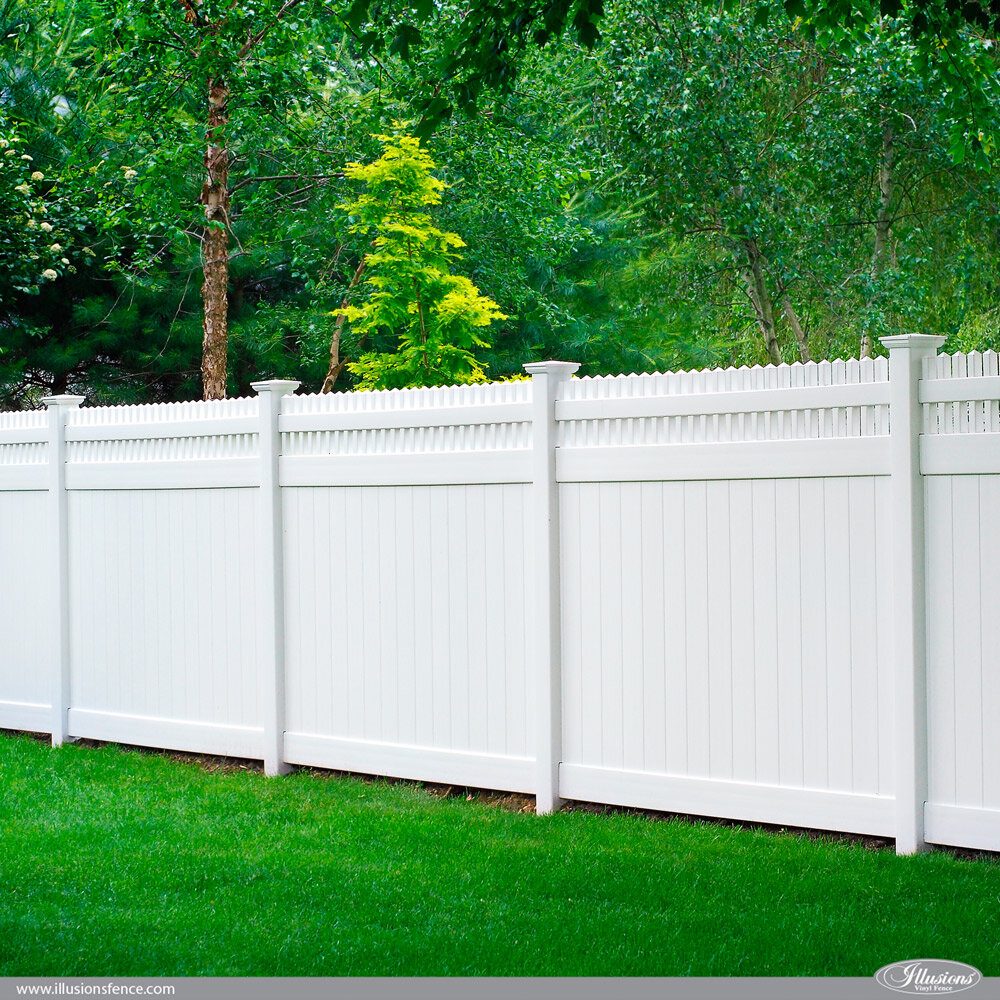All Categories
Featured
Selecting the best fence for your residential or commercial property includes mindful consideration of capability, aesthetic appeals, budget, and lasting upkeep. Whether you're seeking to boost personal privacy, improve curb appeal, or protect your property, recognizing your choices will certainly aid you make an informed choice. Here's a thorough overview to choosing the excellent fence for your needs.
![]()
Privacy: Tall, solid fencings like timber or plastic are optimal for blocking exposure. Safety and security: Tough materials like light weight aluminum or steel provide a safe and secure obstacle. Visual Appeal: Attractive fencings, such as wrought iron or picket designs, enhance visual appeal. Control: For youngsters or pets, fences like chain-link or plastic are sensible selections. Sound Reduction: Thick materials, such as composite fencing, can assist dampen sound. Plainly recognizing your goals will limit your options significantly.
Timber: Uses an all-natural, traditional look and is highly personalized however requires normal upkeep. Vinyl: Low upkeep and durable however may have a greater preliminary price. Light weight aluminum: Lightweight, rust-resistant, and elegant, though not suitable for personal privacy. Chain-Link: Functional and budget-friendly however does not have aesthetic charm and privacy. Wrought Iron: Resilient and attractive but can be pricey and calls for maintenance. Compound: A mix of timber and plastic, providing toughness with a wood-like appearance. Choose a product that aligns with your top priorities and matches your residential or commercial property's style.
![]()
Reduced Maintenance: Plastic, aluminum, and composite fences require periodic cleaning. Moderate Upkeep: Wrought iron fences might need repainting to protect against corrosion. High Maintenance: Wood fencings require normal staining, sealing, or paint. Think about just how much effort and time you want to purchase maintenance throughout the years.
A picket fencing suits a conventional home. A modern-day residential property might look best with smooth, minimal fencing materials like vinyl or steel. A country building may benefit from rustic wood or split-rail secure fencing. 7. Seek Professional Advice. Consulting a secure fencing specialist can assist guarantee you choose the right material, design, and setup procedure for your building. Professionals can examine factors like dirt incline, kind, and climate to advise one of the most appropriate alternatives.
Conclusion. Picking the best fencing for your residential property involves balancing performance, appearances, and expense. Start by determining your goals, discovering products, and considering maintenance and budget. With thoughtful planning and expert recommendations, you can discover the ideal fencing to improve your residential or commercial property's value, security, and beauty for many years to come.
- Define Your Purpose. The initial step in choosing a fence is identifying why you require one. Usual objectives consist of:

Privacy: Tall, solid fencings like timber or plastic are optimal for blocking exposure. Safety and security: Tough materials like light weight aluminum or steel provide a safe and secure obstacle. Visual Appeal: Attractive fencings, such as wrought iron or picket designs, enhance visual appeal. Control: For youngsters or pets, fences like chain-link or plastic are sensible selections. Sound Reduction: Thick materials, such as composite fencing, can assist dampen sound. Plainly recognizing your goals will limit your options significantly.
- Consider Material Options. Each secure fencing material has special qualities, advantages, and disadvantages. Here's a quick summary:
Timber: Uses an all-natural, traditional look and is highly personalized however requires normal upkeep. Vinyl: Low upkeep and durable however may have a greater preliminary price. Light weight aluminum: Lightweight, rust-resistant, and elegant, though not suitable for personal privacy. Chain-Link: Functional and budget-friendly however does not have aesthetic charm and privacy. Wrought Iron: Resilient and attractive but can be pricey and calls for maintenance. Compound: A mix of timber and plastic, providing toughness with a wood-like appearance. Choose a product that aligns with your top priorities and matches your residential or commercial property's style.

- Consider Maintenance Demands. Various fencing products require differing degrees of treatment:
Reduced Maintenance: Plastic, aluminum, and composite fences require periodic cleaning. Moderate Upkeep: Wrought iron fences might need repainting to protect against corrosion. High Maintenance: Wood fencings require normal staining, sealing, or paint. Think about just how much effort and time you want to purchase maintenance throughout the years.
- Review Your Budget plan. Fence expenses include both materials and setup. While chain-link and timber are usually more inexpensive in advance, products like vinyl and aluminum might save cash over time as a result of lowered upkeep demands. In addition, consider potential upgrades, such as entrances or decorative components, when setting your budget.
- Inspect Neighborhood Rules and HOA Policies. Before completing your choice, consult neighborhood zoning legislations and home owner association (HOA) laws. Some locations have elevation restrictions, product limitations, or design standards that might affect your decision.
- Suit the Fencing to Your Home's Style. The style of your fence ought to match your home and landscape. For instance:
A picket fencing suits a conventional home. A modern-day residential property might look best with smooth, minimal fencing materials like vinyl or steel. A country building may benefit from rustic wood or split-rail secure fencing. 7. Seek Professional Advice. Consulting a secure fencing specialist can assist guarantee you choose the right material, design, and setup procedure for your building. Professionals can examine factors like dirt incline, kind, and climate to advise one of the most appropriate alternatives.
Conclusion. Picking the best fencing for your residential property involves balancing performance, appearances, and expense. Start by determining your goals, discovering products, and considering maintenance and budget. With thoughtful planning and expert recommendations, you can discover the ideal fencing to improve your residential or commercial property's value, security, and beauty for many years to come.
Latest Posts
Aabel Roofing: Experienced Roofing Services for Your Home
Published Nov 23, 24
1 min read
How to Extend the Life of Your Roof with Preventive Maintenance
Published Nov 23, 24
2 min read
Top Flooring Brands at Flooring Orland Park
Published Nov 23, 24
1 min read